These photos of children in Syria enjoying a party will warm your heart
Many children in Syria have only known a life of war. See how the IRC and our partners are helping them heal from the trauma of conflict.
Many children in Syria have only known a life of war. See how the IRC and our partners are helping them heal from the trauma of conflict.
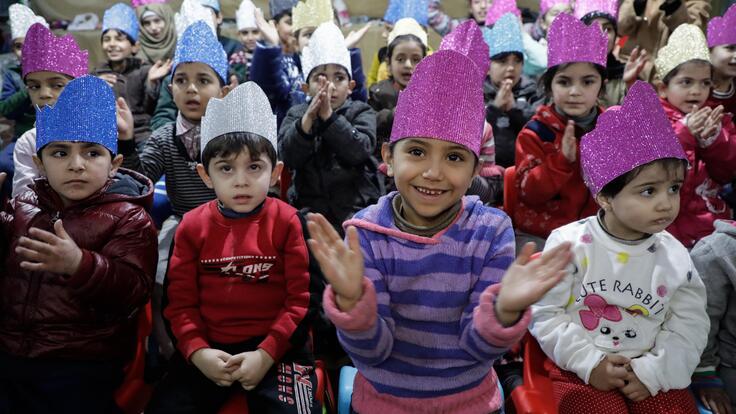
Syrian children in Idlib, located in northwestern Syria, enjoy a day of fun and games at a safe space run by the International Rescue Committee. The center offers children the chance to learn, develop new skills and be creative.
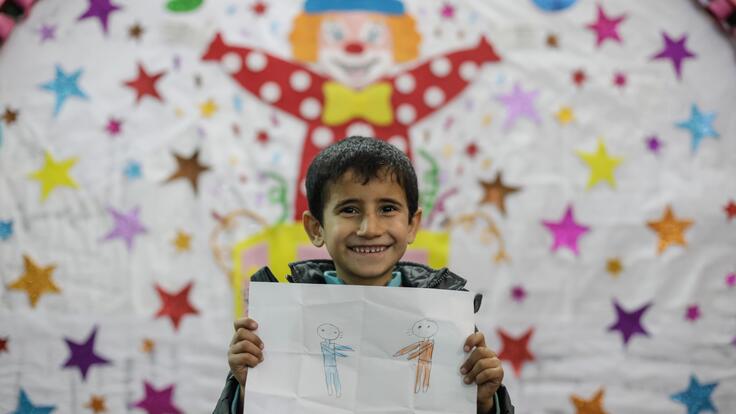
Nine-year-old Mohammad proudly holds up his drawing. Art enables kids to understand and process their emotions. Many children in Syria struggle with toxic stress due to the trauma they’ve experienced from the war.
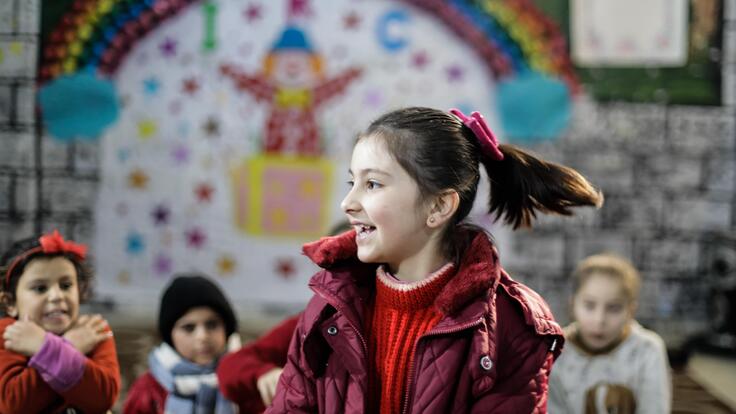
Nine-year-old Abeer fled her home in Aleppo with her family. She visits the center several times a week to take part in activities such as art, music and sports.
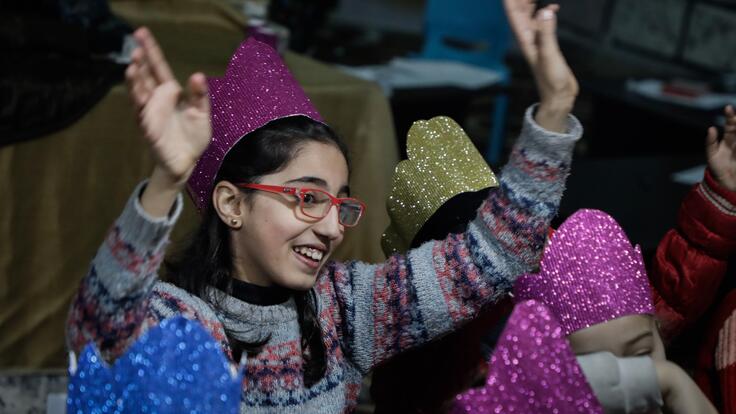
11-year-old Mariam joins in the singing and dancing. She and her sister, Abeer, love visiting the center together. “They are happy there,” their father says. “And that is the main benefit.”
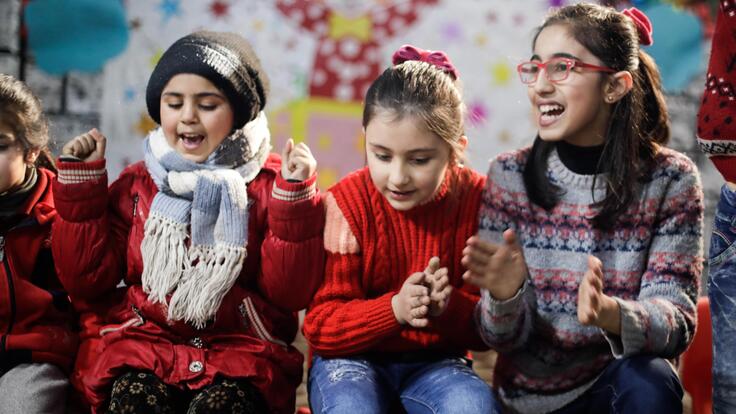
Abeer and Mariam’s father encourages his daughters to explore their talents at the center and to make new friends. “Because of the conflict, my daughters grew up not being allowed to go out,” he said. “I wanted them to interact more with kids their age so that they could overcome their shyness.”
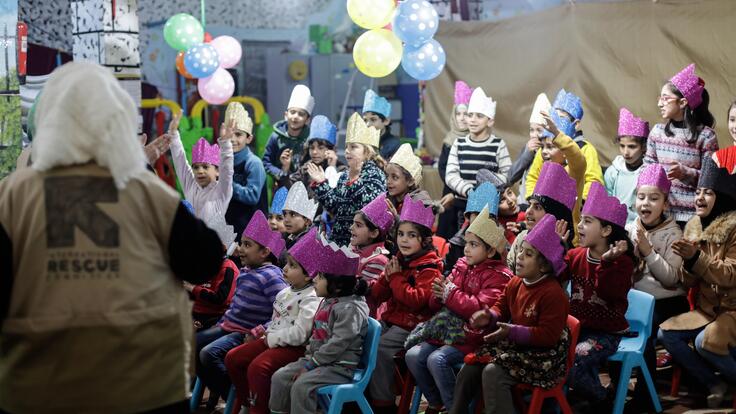
An estimated 1.5 million children live in Idlib, almost half of the province’s population. Many are missing out on school and live in poor conditions.
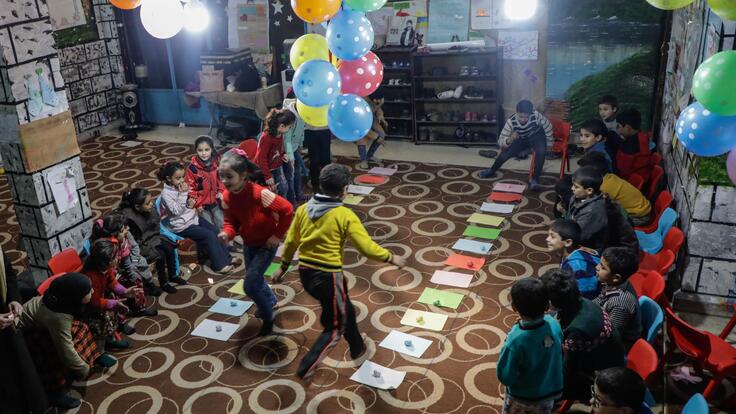
The IRC-run safe spaces in Idlib aim to tackle toxic stress, which occurs when children have been exposed to extreme violence and experienced trauma that will have a long-lasting impact on their health and future. Research shows that having the opportunity to learn and play—combined with supportive and nurturing care—can have a profound and lasting impact on a child’s wellbeing.
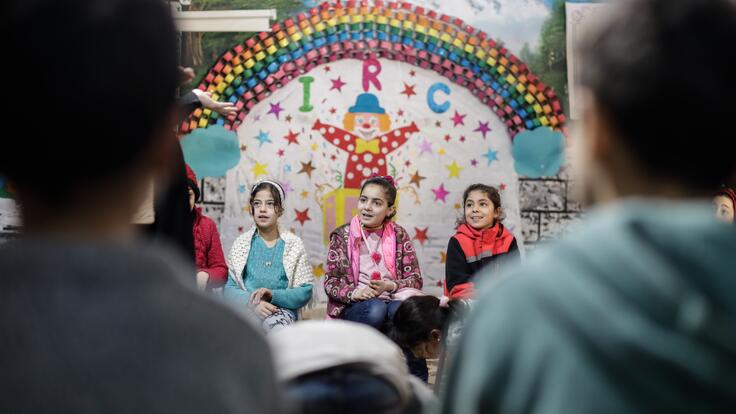
Millions of children are caught in the crossfire of eight years of civil war in Syria. The IRC is providing them and their families with lifesaving health care, psychosocial support and emergency aid—as well as educational opportunities that enable them to create a brighter future.
Get the latest news about the IRC's innovative programs, compelling stories about our clients and how you can make a difference. Subscribe